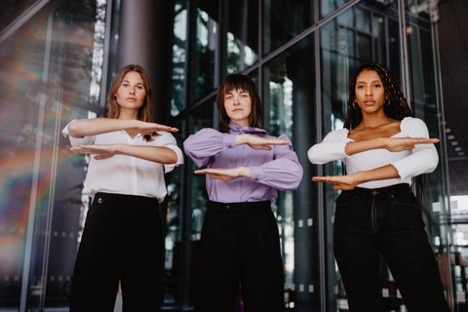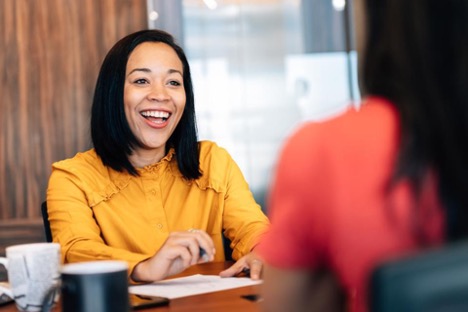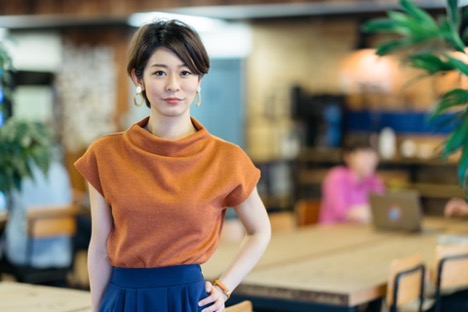Written by Columbia entrepreneur Jennifer “Jaki” Johnson, who is the CEO and founder of WellMiss. Ms. Johnson is here in conversation with her fellow founders in the first cohort of an all-female 8-week accelerator called Project 2.8 within the Columbia Venture Community—the program’s name references the 2.8% women raise in funding.
Female founders raised 2.8% of capital in 2019, but in 2020 that funding fell to 2.3% according to Crunchbase. These numbers exhibit the disproportionate challenges female founders face in comparison to their male counterparts, who raised the remaining 98% of funding. The increased number of female founders experiencing ageism, sexism, imposter syndrome, and imposed limiting beliefs in the startup ecosystem are another significant roadblock to overcome.
Tell-tale signs of the future show us that female founders are becoming their own advocates, mentors, and business cheerleaders to lead with resiliency in 2021.
Among the founders on the frontlines are these 12 women of the first cohort of an all-female 8-week accelerator called Project 2.8 within the Columbia Venture Community—the program’s name references the 2.8% women raise in funding.
Research from the Entrepreneur & Innovation Exchange finds that women business owners see the term “entrepreneur” as something beyond their reach, and they struggle more than men to secure funding because of discrimination from banks, investors, and potential business allies. These female founders are here to help women stand in their equanimity and lead with resilience.
Here are reflections and conversations from our inaugural Project 2.8 cohort.

“I think the perception of entrepreneurship needs to be expanded within popular culture to be more inclusive and inviting.”
Bonnie Gurry and Elizabeth Landau are the Founders of GreenPortfolio, which connects consumers to financial products that invest in renewable energy generation. Gurry explains, “Entrepreneurship has really become a buzzword that often immediately conjures up the idea of a headstrong, passionate young man who goes full steam ahead to bring his vision to fruition. I think the perception of entrepreneurship needs to be expanded within popular culture to be more inclusive and inviting.”
Elevate the conversation on sexism and ageism in entrepreneurship to shift to egalitarianism by being our greatest advocate.
Gurry eludes to what has been existing for years in the funding space. Female founders are never fully accepted or respected as entrepreneurs. They are seen as the other. When female founders pitch for funding they are presented with prevention questions while their male counterparts are presented with promotion questions. The former focuses on how you will prevent your company from failing while the latter focuses on how great your company will become.
Unfortunately, it is still a man’s world. Despite that, female founders achieve a 35% higher return on investment according to the 2016 Kauffman Fellows Report.
“I am over 50, and have actually heard investors say they wouldn’t invest in someone over 40! Self-awareness keeps me grounded.”
Age is another factor of discrimination that silently exists for female founders. “I am over 50, and have actually heard investors say they wouldn’t invest in someone over 40! Self-awareness keeps me grounded,” says Anna Gannon, Founder of Curbicus, a clean, compostable solution to dog waste for urban pet parents. The 2018 State of Startups report showed that investor’s strongest bias was age and that 37% of startup founders believe that this is true with 26.5% of the bias starting between the ages of 36-40. Yet another disadvantage for women, especially since January Venture’s survey showed that the amount of investment capital female founder’s raise doesn’t begin to spike until their late 30’s.
Leaning into your own expectations is one way to push through the outliers and division within a funding space that continues to highlight men as the successors.
Blaire Fernandez, Founder of Marengo, a boutique firm that connects clients with coaches both for personal goal setting and attainment as well as executive coaching for leaders, is focusing solely on her own expectations.“There’s the diversity we’re born with and the diversity we recognize throughout our lives. I’m a Hispanic female founder, so there’s some inherent diversity there. I don’t worry about anyone else’s expectations for me and my path, and I am able to focus on what I need and want,” shares Fernandez.
“Are we having fun? Are we doing something good? Are we staying true to ourselves? If we can’t say yes to all three questions, then it is time for a change.”
Manju Dawkins, Founder of Thimbl, a platform of pain and anxiety-reducing products designed for needle procedures, approaches entrepreneurship from a holistic approach. She centers it with inner happiness and fulfillment versus feeling depleted as a female founder running a startup company in a competitive and unjust landscape. “When we started in 2016, I wrote this down at the front of my notebook as a reminder to myself: Are we having fun? Are we doing something good? Are we staying true to ourselves? If we can’t say yes to all three questions, then it is time for a change.”

Staying true to yourself and your mission is a must on your female founder journey.
“My approach to entrepreneurship in a holistic manner has been to focus on one thing at a time, kind of like stairs,” says Sheeva Abolhassani. Sheeva is the Founder of ASD 123, an interactive platform targeting areas of deficit for children with autism with guided learning on vocabulary, social skills, and more. “Staying positive and balancing your thoughts are some great ways to lead as a female founder to eliminate the potential from early burnout. I look to achieve a level, then move up to the next level whenever I am able to achieve what I need to. The most important thing for me is to keep my mind blocked of any negativity because I know once that seeps in I would lose any motivation or drive I had initially established for myself. So for me, my mind is the most important to keep balanced.”
Approach entrepreneurship holistically through your mind, body, & soul, it is there you will become your own mentor.
Nora Geir, Founder of the digital and gamified career development program CareersKitchen, empowers early professionals to find and pursue their ideal career for success and happiness at work. Nora has found that self-limiting beliefs do not serve us and we must acknowledge and let them go. “The truth is, I haven’t always. There were moments in the beginning when I questioned my decisions and allowed fears to overstep. However, coming to the U.S. by myself when I was 18 has taught me to stand on my own two feet and has given me a certain self-trust that I’m able to figure things out if I just stick to them. So I addressed my limiting beliefs and turned them into empowering thoughts, instead. Having self-belief and a strong mindset is one of the most powerful assets to my resiliency.”
“It was time to stop pointing out why I should not take another turn and start a new thing.”
“I wanted to stop arguing against myself. I have missed many things in my life while I hesitated to do something or take a chance. It was time to stop pointing out why I should not take another turn and start a new thing. As my favorite jazz musician Miles Davis once said, “Do not fear mistakes. There are none.” Kate Lee, Founder of Attigor, which provides legal services and business consultancy to individuals and organizations in the global art world in all types of art transactions, intellectual property, and international trade lets us know that she has found that changing the way you approach taking on risk and chances is all about shifting your mindset. You are your best bet, stop holding yourself behind. Sometimes we can be our own worst critics.
Remember who you are and the game will change. This will drive your inner business cheerleader.
Hao Li, Founder of Multipliciti, a B2B marketplace that connects building project teams with material suppliers to streamline design and procurement, never stopped trying when she was told earlier in her career that she was not a good fit for her industry. Li experienced what Adjunct Professor Mary Rowe at MIT Sloan would call microinequities—a term she coined to identify unintentional discrimination such as being overlooked, ignored, excluded, or dissed. “In my early academic career, I have been told that I was not a good fit for architecture; I never gave up on it and many years later I worked at a top design firm and my design talent was recognized. Sometimes being resilient is being patient with your own growth and understanding that it takes time” says Li.
“You being here in this moment, fully present, and debunking stigmas is what will trailblaze the steps of others.”
As a founder who recently graduated alongside the cohort, I have found that entrepreneurship has to be approached from the inside as much as the outside. You have to do the inner work to succeed as a female. My startup, WellMiss, is an inclusive wellness brand of nature-infused skincare and supplements that fosters community and self-care practices to help women take on their daily wellness challenges. WellMiss is who she is becoming and we empower her to create her own inner wellness sanctuary.
My journey to starting WellMiss started with doing the inner work to move through my healing grief journey after the passing of my 15-year-old son Christian in 2019. Anxiety, stress, fatigue from my grief, and life’s daily stressors were at my doorstep and I found that wellness practices, self-care rituals, aromatherapy, and nature therapy changed my life. I can honestly say that it saved it. It is there where I created my own inner wellness sanctuary. It was at that moment WellMiss was birthed. Because of that, I believe you must go home within to tap in, tune in, and take care of yourself as both a woman and founder. Listen to your inner compass and remember that your gift and your purpose creates room for others. You being here in this moment, fully present, and debunking stigmas is what will trailblaze the steps of others.

As I look back over my cohort and each of us as female founders, I am more than proud to have shared this experience and space with them. Women, we are not alone. We are more alike than different. This is why it was so important to share these insights and experiences to help us move stronger, confidently, and ready in 2021. We doubt ourselves, we struggle with being overlooked, we have to do more to be recognized, and we can lose ourselves in the process. It can be overwhelming but remember this: you already have everything you need inside of you. You are more powerful and capable than you think.
2021 is a new year and the road for female founders continues to have its challenges. However, using these reflections may be able to separate what was from what it is becoming in the startup landscape. The future is bright for female founders, but we must keep trekking and pulling each other forward. This is the time to hold each other up and become allies for one another. Furthermore, don’t forget to nourish your soul by giving yourself grace, patience, and love while on this entrepreneurial journey.
About the Author

Jennifer “Jaki” Johnson is the CEO and founder of WellMiss, an inclusive wellness brand of nature-infused skincare and supplements that fosters community and self-care practices to help the ever-changing woman by empowering her to create her own inner wellness sanctuary on-the-go or at home. Johnson has traveled to over 26 countries and holds an MS from Columbia University Graduate School of Journalism and certification in Women’s Entrepreneurship from Cornell University.

